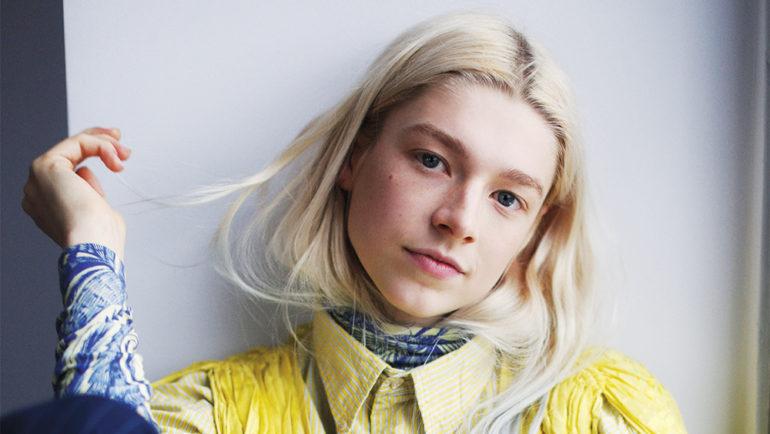Trans Superstar Hunter Schafer on Her Moment of ‘Euphoria’
By Daniel D’Addario
LOS ANGELES (Variety.com) – With “Euphoria,” a drama about teens at an American high school, HBO has placed a bet on attracting a young audience that favors Instagram over TV. And the premium cable network’s greatest asset may be a digital-native star who never aspired to be an actress until the role found her.
As Jules, 20-year-old actress Hunter Schafer plays a part in a complicated Gen-Z story of love in the time of “likes”; her character (who, like her, is trans), embarks on a complicated friendship bordering on courtship with new BFF Rue (Zendaya). Jules is a habitué of the everything-on-demand web — which provides opportunities for self-discovery, at times through after-curfew encounters — and is unafraid to stand up for herself or to risk real danger. But there’s a core of unfulfilled romanticism at the character’s heart, a dreaminess that contrasts with Rue’s dour realism.
In conversation, Schafer is as light and airy as her idealist character. Describing how she ended up auditioning for an drama — after experiencing the first blush of fame as a model for Christian Dior, Helmut Lang and Marc Jacobs, among others — Schafer says, “I was just like, ‘F–k it; why not? Let’s try!’ It snowballed from there.” Her reps suggested she attend the first audition, which Schafer had already seen posted on Instagram; she’d been planning to attend fashion design school. “Eventually, I did my final audition out in L.A., and I was filming a pilot a month later.”
The allure of HBO and aside, it’s easy to see why Schafer disrupted her plans. Jules represents a too-rare opportunity — the character grapples with desire but not, in the show’s early going, with gender identity, in which she is secure. Playing a role in which gender was not the struggle was exciting. “There need to be more roles where trans people aren’t just dealing with being trans; they’re being trans while dealing with other issues. We’re so much more complex than just one identity.” “” hasn’t just changed the way Schafer sees her career unfolding: “It’s altered the way I think, period. As a trans person I worked really, really, really hard to figure out who I was and solidify that and take hold of it. The idea of having to put that aside and create this new person is scary. But it’s also really exciting to me, continuing to morph and to evolve.”
Schafer comes by her wisdom about rapid change, and her knowledge of high school, honestly. She’s already experienced a few breakneck years of career evolution, and she was practically just a high schooler (she brought her younger sister to a “Euphoria” screening recently to verify that the series rang true). Growing up in North Carolina, Schafer was a named plaintiff in the ACLU’s lawsuit with her home state over the “bathroom bill,” which sought to prohibit expansion of protections to LGBTQ people and to govern who could use what public washroom. “I was in a place of privilege in my transition and felt like I could handle making myself visible in order to help my state understand why what they were doing was detrimental to my community,” Schafer says. “But I don’t think that makes me an activist.” As for whether she’s a role model to young teens, Schafer says, “I don’t feel prepared or mature enough, but I think it’ll be interesting to see what happens over the next few months of the show airing. It might not really be up to me anymore.”
Her acting, though, represents a potent sort of advocacy — putting a story not unlike Schafer’s own in front of HBO’s subscribers. She worked with show creator Sam Levinson to ensure that details of the story chimed with her experience. “All the complications that come with being trans and queer simultaneously, as far as that being something the public is going to see: That’s really exciting to me, because that story will be accessible. But what’s also exciting is that it’s not about that at all.” But for all Jules’ story’s particular complications, representation has an elemental power. When she was growing up, Schafer says, “the internet saved me — being able to go to YouTube and watch people’s transition timelines, and see myself on a screen.” Untold numbers more will see themselves, now, in her.

